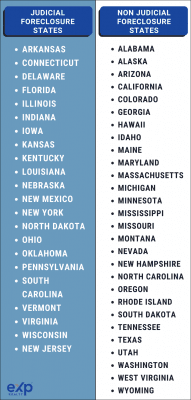Losing a house is a moment nobody ever wants to fathom, but sometimes life happens. Anyone can experience a sudden job loss or financial hardship that might end up in the defaulting of the necessary mortgage payments. If you own real estate in Georgia or any other state and you find yourself in this situation, it is essential to seek advice and act quickly to prevent that foreclosure notice from entering your mailbox. It is also critical to stay informed to minimize a potential foreclosure’s impact on your life and financial future. This article will explain what the power of sale is in real estate, how it works, and what you should know about it if you end up facing foreclosure proceedings.
 What Is The Power Of Sale?
What Is The Power Of Sale?
The power of sale is a clause or provision present in most mortgage agreements. It states that, if a homeowner defaults on the loan, the moneylender has the authority to take possession of the property (foreclosure) and sell it under specific conditions. This is done in order to protect the lender from being stuck with mortgage debt.
The presence of the power of sale clause in a mortgage note leads to a statutory or non-judicial foreclosure, an expeditious, more direct, and less expensive procedure than the more traditional judicial foreclosure. This is because the power of sale allows the lender to bypass the court’s judicial review. Although some states, like Florida or Nebraska, do not allow the power of sale, many others do.
How Does The Power Of Sale Work?
The process for executing a power of sale provision differs by state, but it generally comprises a few basic steps. Everything starts when the borrower is unable to fulfill their mortgage obligation. As stated in the federal regulation, they must be more than 120 days late in their payments before the foreclosure process may begin.
After the stipulated time, the homeowner will receive a notice from the lender (commonly by mail) informing them about the implementation of the power of sale clause and the loss of the property. A borrower might get any of the following notices depending on what state law requires:
- A default notice: This notice alerts the borrower of a potential foreclosure and gives them time to reinstate the loan by making up all the missed installments. The notice of sale might follow this.
- A sale notice: This notice informs the borrower that their home will be sold on a specific date unless they pay off the loan. In some states, just one of these notices are required to proceed with the foreclosure sale.
- A mixed default and sale notice: This combined notice alerts about missing payments and property sales because of the default.
- A published or posted notice: In a few states, the borrower is notified about the foreclosure and sale of a property by posting or publication.
Mortgage lenders must carefully follow the state regulations on how to notify their customers about default, foreclosure proceedings, and foreclosure sales. Each state has its own timelines, waiting times, and processes in place to ensure borrowers are adequately informed. Borrowers have the right to request time to try and negotiate, attempt an exit from default, and restore good standing with their lender before losing the property.
When the foreclosure is successfully communicated, and there’s a power of sale clause in the mortgage, everything moves quickly because it takes place out of court. A third party known as a trustee will take over the procedure (non-judicial foreclosures are usually based on deeds of trust). The trustee will be in charge of conducting a foreclosure sale to sell the home.
The Power Of Sale Pros And Cons For The Homeowner
Though the power of sale provision seems to be as advantageous to lenders as it is harmful to homeowners, there are actually some benefits the borrowers can obtain from it depending on the state laws. To better understand how this whole process works in real estate, let’s carefully weigh its pros and cons of the power of sale clause for the homeowner:
Pros
- The option for a judicial review: Even though the non-judicial foreclosure doesn’t ordinarily subject to the supervision of a court, borrowers have the right to challenge it by filing their own lawsuit. By doing so the homeowner is asking the court to halt the foreclosure while they work out any legal issues.
- The possibility of getting profit from the foreclosure sale: If the foreclosed home sells for more than the total outstanding debt plus any other liens on the property, the borrower might get some of the money.
- Being able to avoid deficiency judgment: A deficiency judgment could be filed against a borrower by a local court if a lender sells the foreclosed house for less than what the homeowner still owes on their loan. That can be avoided in California, Minnesota, Alaska, Montana, Washington, and Oregon in most cases. Other states allow deficiency judgments in specific circumstances.
Cons
- Limited time to act: The borrower has more time to negotiate in a judicial foreclosure procedure because the process can take several months or even years to be completed. In contrast, a power of sale foreclosure or non-judicial foreclosure can be concluded way faster, usually in a few months.
- Not much notice about the foreclosure: In some states, the lender is only required to send the borrower that failed to make loan payments one default notice followed by a sale notice, or a combination of the two. In other jurisdictions, a simple publication or posting about the foreclosed home sale is enough.
- Filing a lawsuit is the only way to respond: In a typical non-judicial foreclosure, there’s no court review. To fight the foreclosure by power of sale in court, a borrower must file their own lawsuit to dispute the foreclosure and gain some time to try to save their home. That includes paying the filing costs, a lawyer, and any other necessary fees.
Are There Rules Governing The Power Of Sale Foreclosure?
In short, yes. States’ legislation includes a plethora of provisions intended to safeguard homeowners from unfair foreclosure proceedings; that includes the legal action and the right of redemption. If a homeowner believes their property was illegally taken from them and wants to challenge the taking, they can initiate litigation by filing a lawsuit under the laws of the state where the house is situated. On the other hand, the right of redemption allows the homeowner to reclaim a home that’s in foreclosure before it goes up for auction. In order to retake possession of the house, the borrower has to pay off their debts and any extra charges or interest payments that have accrued.
If you prefer building your own home instead of buying, it’s important to know the types of construction loans to save time and money.





